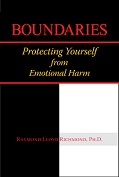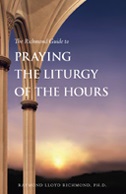|
|
|

About a year
ago I sought guidance about masturbation and looking at pornography. I was told
that it was not a mortal sin in my case because it was leading me towards love. What
do you say about this? That response confused me. Anyway, I have still been troubled
with these vices. I have prayed for God to make me stop, and yet I am unable to resist
the temptations, and I still look at porn and masturbate. What am I missing? What is
my motivation behind this desire, and why won’t I stop?
 ave you heard it said, “With friends
like him (or her) I don’t need enemies”? Well, with guidance like the kind you
encountered, you don’t need demons to seek the ruin of your soul. Christ told
Peter to “feed my sheep” (John 21: 15–19), and men and women who give guidance
like this have been feeding His sheep all right—they’ve been feeding His sheep to
the wolves! ave you heard it said, “With friends
like him (or her) I don’t need enemies”? Well, with guidance like the kind you
encountered, you don’t need demons to seek the ruin of your soul. Christ told
Peter to “feed my sheep” (John 21: 15–19), and men and women who give guidance
like this have been feeding His sheep all right—they’ve been feeding His sheep to
the wolves!
The Theological
Issues
The advice you were given is wrong
theologically (a) because Christ Himself told us that lust—even
lust in the heart—is a mortal
sin [1]
(Matthew 5:28), (b) because the Tradition of
the Catholic Church has preserved Christ’s teaching through the ages,
and (c) because the Catechism of the Catholic
Church (2351–2354) continues to endorse that
teaching.
The Psychological
Issues
The advice you were given is wrong
psychologically because it doesn’t recognize that
sexuality (when stripped of its procreative
function) has nothing to do with love.
Sexual Fantasies
Sexual
fantasies, whether thoughts or feelings, often arise as images
of satisfaction when, because of other circumstances, we are feeling deprived,
ineffectual, weary, unrecognized, or alone. The experience of genital arousal
points to a yearning for an intoxicating existential merger with an “other” to
hide the unwanted reality of your own brokenness; you “devour” the other so
that you can experience the ecstasy of transcending the “unknown” or of “seeing”
or “feeling seen” (common male fantasies) or of “being filled” (a common female
fantasy).
Same-sex attraction (SSA) fantasies
can reverse these roles: a man can desire to be filled with the strength
of a father (who in reality was weak, or absent, or cruel); a woman can desire
to see, or be seen, by a mother (who in reality was cruel or neglectful or
smothering).
The combinations can be almost
infinite, but they all point to a certain lack of unconditional childhood
recognition, guidance, or acceptance that resonates with a current
lack—that is, a deprivation—of recognition, guidance, acceptance,
resources, or time.
Consequently, from
these experiences a false belief can develop: “I am deficient.”
The psychological point here
is that filling up a lack has nothing to do with love.
Sexual fantasies can also derive
from memories of past sexual activity—voluntary or inflicted
abusively—that now carry feelings of guilt or regret or even anger.
In this context, men can have fantasies of raping, and women (and some men)
can have fantasies of being raped, all as an unconscious attempt to usurp God’s
mercy and inflict punishment on themselves with the
same merciless severity with which punishment was inflicted on them in childhood
by their parents.
Consequently, from
these experiences a false belief can develop: “I am bad.”
The psychological point here
is that guilt, regret, and anger have nothing to do with love.
Pornography
Pornography
derives from the urge to defile an “other” by using the other as
an object of consumption to devour for your own pleasure. On the surface, it
may seem that pornography is simply about erotic pleasure. But when the human
body is made into a biological toy, it is stripped of all human dignity,
and this defilement is a psychological act of aggression. The hostility may
be unconscious or it may be openly violent, but, either way, it has its basis
in resentment.
To whom, then, is the resentment
directed? Well, as in all things psychological, the resentment goes back
to the parents. Deep down, under all the apparent excitement, and despite
the attraction to what is seen, lurks the dark urge to
hurt and insult—to “get back
at”—what is behind the scenes: a mother who devoured, rejected,
or abandoned, rather than nurtured, or a father who failed to teach, guide,
and protect.
So face the shocking and sad
truth: in your childhood you were made into an object that was manipulated,
scorned, or ignored, and now you seek the perverse satisfaction of making others
into objects so you can “feed” on them for your pleasure.
Consequently, from
these experiences several false beliefs can develop: “I don’t matter,” “No one
cares about me,” “I’m entitled to my own pleasure,” and, most perverse of all,
“I don’t care about anyone else.”
The psychological point here
is that revenge has nothing to do with love.
Masturbation
Autistic self-stimulation (i.e.,
masturbation) does not lead you towards
love because it’s a defilement of love. Masturbation makes your own
body into an object
that you use for your own pleasure, but real love does not seek anything
for itself. Real love is not a feeling; instead, it is an act of
will;[2]
it’s a self-sacrifice for the sake of the
salvation of other souls. Masturbation, in opposition
to real love, seeks everything for itself; it’s really just a subtle
form of anger for not having received your parents’ love—especially
your father’s love.
As a child, you felt lonely and neglected,
and you had to take matters into your own hands to teach and protect yourself. You
essentially had to raise yourself as a child without your parents’ guidance. So now,
as an adult, when you feel ineffectual, anxious, lonely, and neglected, and are not
working at a fulfilling vocation, what do you do? You take matters into your own hands
and raise yourself—literally. But, in the process, all you really do is f*** your
hands in contempt for your not being able to use them for any work that is
meaningfully fulfilling for you.
Consequently, from
these experiences a false belief can develop: “I have to do everything myself.”
The psychological point here
is that the defilement of love has nothing to do with love.
The Actual
Failure
Finally, the advice you were given is
wrong in actuality because the advice has done nothing to help you. You
still have the same problem as before and you are now more confused and discouraged
than before.
You need some clarity
about prayer, and until now you have not been taught how to pray. Your prayer
hasn’t been “working” because you have not been praying properly. You have been
asking God to make you do something, but you haven’t been focusing on
nurturing the desire for a chaste and
pure heart; consequently, even as you think you are praying to stop masturbating,
in your heart you continue to desire lust.
To stop masturbating—and to get free of
the pornographic fantasies that lie behind the masturbation—it is important to pray
for a chaste and pure heart. But to do that you first have to let go of your desire
to have success just handed to you. Right now you are angry at how the abuse you
experienced as a child has kept you stuck in failure, and so, in fear, anger, and
desperation, you demand compensation from the world and from God for what was not given
to you as a child.
But—and this is a big “but”—if you stop
wanting everything handed to you and start making a constant and heartfelt effort to
do the hard work of your healing, you can ward off temptations to lust with a desire
greater than lust—that is, with a desire for the love for God.
So let’s get to the truth of the matter
and find out why you masturbate and what you can do to stop. Rather than stumble over
the bad advice you have been given before, learn to pray for a chaste and pure heart,
so that love for God will be your greatest desire and will ward off temptations to
futile desires.
Just Get Over It
You might be saying to yourself, “I
wish I could just get over it.” Yet, no matter how much you try, you can’t get over
it. Why? Well, in regard to lust and masturbation—and for that matter, to sin in
general—we can’t just “get over it” because we have to go down “underneath it”—that
is, deep inside ourselves—to see the dark desire to sin that lurks in the
depths of our unconscious.
In Canto I of Book I (Hell) of Dante’s
Divine Comedy, Dante finds himself lost in a dark woods (symbolizing the
spiritual blindness of a heart hardened by sin). He tries to escape by climbing up
a beautiful mountain, but he is driven back to the woods by three animals, a leopard
(symbolizing lust), a lion (symbolizing violence) and a wolf (symbolizing malice).
Back in the woods he meets the shade of Virgil, an ancient Roman poet, who proposes to
guide Dante down through Hell to get to Purgatory and ultimately
Paradise.
|
The Mountain, which on
the mystical level is the image of the Soul’s Ascent to God, is thus on the moral
level the image of Repentance, by which the sinner returns to God. It can be ascended
directly from the “right road” but not from the Dark Wood because there the soul’s
cherished sins have become, as it were, externalized, and appear to it like demons
or “beasts” with a will and power of their own, blocking all progress. Once lost in
the Dark Wood, a man can escape only by so descending into himself that he sees his
sin, not as an external obstacle, but as the will to chaos and death within him (Hell).
Only when he has “died to sin” can he repent and purge it. Mount Purgatory and the
Mountain of Canto I are, therefore, really one and the same mountain as seen on the
far side, and on this side, of the “death unto sin.” |
|
|
—Dorothy
Sayers [3] |
|
So let’s proceed down into your unconscious
to get to the truth of the matter and find out why you masturbate; then it will be
possible to understand what you can do to “die to sin” and purge yourself of the dark
chaos of lust that afflicts you.
The Urge to
Masturbate
The urge to masturbate begins
because you have been feeling helpless, anxious, ineffectual, deprived, or
burdened in some way. In this state of mind, you crave some comfort to relieve
your emotional pain. Well, the four greatest natural emotional pain relievers
are alcohol, drugs, food, and genital stimulation. They are potent natural
pleasures of the flesh.
All Christians have been called to
grow in spirit and love beyond the natural pleasures of the flesh. Even though
masturbation has nothing to do with spirit and love, the desire for pleasures of
the flesh, rather than a desire for spirit and love, grows in you for
two reasons.
First, unconscious anger
at your parents—especially your father —for not protecting you and guiding you with
real love leaves you angry and feeling frustrated, and your natural impulse (that is,
according to fallen human nature) is to deaden that frustration with an emotional pain
reliever.
Second, because real love has been missing
in your life, you feel ashamed and incompetent—like you’re trash. Moreover, you blame
yourself for being trash; that is, you blame yourself for not being able to make your
parents love you, and you blame yourself for not being able to do real work at a meaningful
vocation. All that blame becomes unconscious anger at yourself. Your natural urge,
therefore, is to turn to the pleasures of the flesh for relief, even though you know
intellectually that those pleasures defile love, that they are merely transitory and
therefore futile, and that they harm not only your body and your soul but also the persons
and the world around you, including your marriage (if you are married) and your children
(if you have children).
Feelings of anxiety, helplessness
and deprivation will vary in detail from person to person and from situation
to situation, but the point is that you don’t turn to God with all your
mind, all your heart, all your strength, and all your soul in the midst
of your emotional pain because you were not taught how to do it.
So, like a child—all alone, with no one to explain things, and trying
desperately to figure out things on his or her own—you give in to the
urge to take matters into your own hands to relieve yourself of your own
despair. But, in all reality, that relief is just a short-lived
illusion.
|
At the moment of
orgasm, you will desire its ecstasy with all your mind, all your heart, all
your strength, and all your soul. You will be desiring the orgasm with the
same desire you wanted your parents to have for you, at the moment you were
conceived and in every moment thereafter. But their love was flawed—or
missing altogether. So, as a substitute for their acceptance, you will seek
the acceptance of others. Yet they, too, will fail you. Angry and deprived,
you will turn your back on God and, with all your mind, all your heart, all
your strength, and all your soul, you will seek—not
God—but . . . the orgasm, as you try to keep alive
the illusion that you are wanted by the world. |
|
In reality, then, masturbation is a
non-achievement that invokes the illusion of achievement. As much as you keep
trying to do it, it’s impossible to use your own body to heal your emotional
despair. Try as much as you want, but you will find yourself condemned to failure
like Sisyphus, in Greek mythology, who struggled to push a heavy stone uphill,
only to have it roll back down again, over and over.
Sin Feels Good
How is it that we can continue to commit
sin even when we know that it leads to nothing but failure and doom? Well, the truth
is, sin feels good. Yes, in the moment, sin feels good—and, in the moment, most
persons do not think about holiness; they think only about the pleasure of the
moment.
Lust
gives us raw physical pleasure. It can be intense and intoxicating. But lust
is not a sin because someone in authority, for some arrogant and mysterious
reason, says so. Nor is lust a sin because it feels good. Lust is sin because
it leads you away from the goal of holiness and into the empty pleasures of
merely feeling good in the moment. Lust is sin because it misses the point of
life.
God is the point of life, and He
gave us genitals so that we could bring new life into the world. Note that we aren’t
creators; God is the Creator and we are procreators—that is, we stand
in the place of the Creator. Our genitals therefore serve the purpose of procreation.
They serve love by bringing children into the world who will learn to love
Love—God Himself—to become love themselves.
Lust, however, is not love. Despite its
intensity of feeling, it is not love. It defiles love. It is the hatred of love
because it defiles procreation. It makes pleasure its own end, and so it ends in
failure.
Still, it feels good—and that
points to the ultimate spiritual battle. Despite the throbbing intensity of
lust’s attraction, we have to struggle against the pleasure of sin and constantly
remind ourselves that, despite all the allure, lust is the hatred of
love.
Sexual
Addiction?
Individuals who don’t understand
the reality of the spiritual battle with the evil of lust use the term
sexual addiction as a politically correct way to make it seem that our
sexual behaviors are medical matters for scientific control rather than
matters of personal responsibility.
Actually, it is more clinically
correct to say that pornography and masturbation are habits, rather than
addictions, and that they are acquired through continual exposure and practice.
Consequently, the truth is that your recurring urges to consume pornography
and to masturbate derive from exposure to the false belief that sexual pleasure is
just a form of sporting pleasure necessary for your happiness, and that the practice
of its consumption, rather than being a personal moral choice, is a medical necessity
for your emotional well-being.
Note also that the current politically
correct “scientific” term for masturbation is self-stim, a term calculated to imply
that self-stimulation is just an innocent comfortiing behavior, rather than a morally
disordered practice.
Thus you have been duped by diabolical
powers into believing that hatred for the sanctity of your procreative physiology has
the power to relieve your emotional emptiness.
You have been duped especially
by the entertainment industry, an industry that has been working subversively
through movies and television to glamorize lust and divest the human sexual function
of its holy dignity, all in a diabolical plot to destroy Christian moral and family
values.
For example, it may seem on the surface
that “the woman” (who stands at the center of all erotic imagery) has been idealized
and revered, but the underlying motive of this idealization has been to defile feminine
virtue, stripping the female body of its holy dignity and reducing it, often with
violent overtones, to a naked, soulless sex object. Moreover,
even though it may seem on the surface that socially progressive values such as
feminism have “liberated” women from “patriarchal oppression,”
the truth is that women are increasingly enslaving themselves to the evil of
lust.
The end result is that our secular
culture worships lust as its goddess, and all Christians are surrounded with
pernicious temptations to abandon their baptismal promises—solemn
promises to reject the works of Satan. Then, with those once holy promises hanging
from them in useless shreds, they become easily seduced into assuming free
permission to partake of the harlot’s Satanic allure.
Yes, you have been duped by the very
diabolical works that, in your baptismal promises, you claimed to reject. You have
been duped by the diabolical anti-Christian “progressive” liberal agenda of the
entertainment industry into believing that sin doesn’t even
exist and that behaviors condemned by Christ are normal and acceptable and that
sexual pleasure is necessary for your “happiness.”
As a result, instead
of taking personal responsibility to detach
yourself from social illusions, you willingly
consume them, over and over.
You have been duped into believing
that you can use your own body to heal your emotional despair, and so sin
enslaves you even as you are told that sin does not exist.
It’s not politically correct to admit
it, but it’s not really an addiction that troubles you: it’s diabolical anti-Christian
cultural brainwashing.
How to Stop Masturbating:
Recognition, The Bridge, and Prayer
Recognition
To be
healed of your slavery to repetitive sin, first
learn to recognize your feelings of
helplessness and deprivation as soon as they occur. As you begin this learning
process, there might be a long delay between your falling into a temptation
and your discovering its triggers, but with practice you can shorten the delay;
eventually, you will be able to recognize your particular triggers almost immediately.
In any case, sooner or later, notice how they manifest in your particular
circumstances.
• |
Maybe they are a matter of your being
overwhelmed with obligations, without proper guidance and assistance, so
that you feel lonely, weary, and burdened. |
• |
Maybe they are a matter of your being
obstructed and hindered by others, so that you feel insulted and
neglected. |
• |
Maybe they are a matter of your own
inner confusion and lack of confidence, so that you feel frustrated and
stuck. |
The Psychological
Bridge
Then follow
the psychological bridge to the past; that is, consciously explain to
yourself how your current feelings of helplessness and deprivation connect to similar
feelings from your childhood. Think back to the actual childhood events that
precipitated the feelings and describe them in detail.
Prayer
Then gather up all this scrutiny
and bring it in prayer before Christ.
Pray to Him for guidance and courage to overcome the past. Pray from your heart,
as you would speak to another person. Pour out your feelings and doubts and
frustrations in sincere honesty.
But be careful here. The mistake would
be to believe that your sins make you unworthy for God to hear your prayers; the truth
is that it is in these very moments of your weakness and vulnerability that
Christ has the most compassion for you and the
most eagerness to help you.
• |
Pray that the
desire for holy love will grow in you and overshadow
every other desire. |
• |
Ask for the strength and courage
to persevere through your painful feelings into confident
trust in divine protection despite what others do. |
• |
Admit your
wretchedness and ask for the grace to
love, and to pray for,
everyone—even your enemies—despite the mistreatment you received
from your parents as a child and continue to receive, even now, from others.
|
The Spiritual
Battle
Below are some psychological
concepts that can assist you in the battle with your impulses to sin.
Feel the
Sorrow
When erotic fantasies or urges to
look at pornography disturb you, it will be necessary to train yourself to seek
only in Christ—not in the body of another person, and not in your own
body—the true recognition and comfort that is lacking everywhere
else.
Temptations can be so enticing, however,
as to scatter your prayers; therefore, praying for the temptation to “go away” will
not likely help you. Moreover, when confronted with temptations, many
persons make the psychological mistake of telling themselves that they can’t
have something or that they shouldn’t do something. Trying to force
yourself away from a desire only increases its intensity!
The one thing that can help you the most
is to focus on the sorrow of love being defiled.
Consequently, it will be important to
look beyond the illusion of satisfaction that the desire projects in front of you;
instead of seeing the illusion, pay attention to what you are really experiencing
when you look at someone with lust.
• |
Instead of seeing a body that arouses
your lust, feel the sorrow of a person being defiled by
immodesty. Feel the sorrow for a soul that has been so
deceived and overwhelmed by sin that it hates itself and hates
God.[4] |
• |
Instead of seeing your own pleasure,
feel the sorrow of being a predator who “feeds upon” the erotic pleasure of another
person. |
• |
Instead of seeing the “hope” that
another person can fill your emotional emptiness, feel the sorrow of knowing
the truth that your own mother and father did not comfort and guide you as a child
when, in the face of impending responsibility, you felt vulnerable and
insecure. |
• |
Instead of seeing the “comfort” of
self-stimulation, feel the sorrow of all the time and effort wasted in
masturbatory non-achievement that has done nothing but leave you with more and more
emptiness, devoid of any real love. |
With your heart,
“see” the illusions for what they really are, and then vow that you will revere and
protect God’s love.
Beware the
Immodesty of Other Persons
Many impulses to sin originate
in the immodesty of other persons. When
others wear clothing that does not cover their
bodies with chaste dignity but instead draws attention
to the intimate contours of their body parts, you will be attacked in two
ways.
First of all, your
curiosity to see “behind the veil” will become
incited.
The psychoanalyst
Jacques Lacan, in The Four Fundamental Concepts
of Psycho-Analysis, tells the story of a competition between two ancient painters,
 Zeuxis and
Parrhasios.[5] Zeuxis receives acclaim for painting grapes so life-like
that even the birds who try to peck at them are fooled. In his pride, Zeuxis
then goes to look at the work of Parrhasios. But Zeuxis sees only a veil,
and so he asks to see the painting that Parrhasios has hidden behind the
veil. Well, Parrhasios’ painting was the veil. It was so well
done that it fooled even the master of deceptive painting himself. Hence
Lacan points out that if you want to deceive someone, present him with a
“veil,” something that incites him to ask what is behind
it.
Zeuxis and
Parrhasios.[5] Zeuxis receives acclaim for painting grapes so life-like
that even the birds who try to peck at them are fooled. In his pride, Zeuxis
then goes to look at the work of Parrhasios. But Zeuxis sees only a veil,
and so he asks to see the painting that Parrhasios has hidden behind the
veil. Well, Parrhasios’ painting was the veil. It was so well
done that it fooled even the master of deceptive painting himself. Hence
Lacan points out that if you want to deceive someone, present him with a
“veil,” something that incites him to ask what is behind
it. |
Then, with your curiosity incited,
you will feel frustrated that you cannot see behind the veil, and
to ward off the conscious awareness of your dreaded helplessness you will
experience a surge of fantasies that offer imaginary relief to your
frustration.
At this point
STOP!
• |
Remind yourself that
those who love God respect the sanctity of their reproductive functioning and
do not play with their bodies like toys. Tell yourself that you can love God
like this, too. |
• |
Remind yourself that
lust is just an unholy illusion that can never
heal the emotional pain that provokes it. |
• |
Remind yourself that
lust causes real spiritual harm to others—and to
you. |
• |
When you feel the
urge to look at or touch or kiss someone erotically, tell yourself,
“It’s futile. There is no point in thinking this way because it
is not in accord with procreative
sexuality.” [6] |
• |
Remind yourself that
those who dress immodestly are themselves blinded
by sin and trapped in it. Rather than make them into objects of your lust,
feel sorrow for them and pray for their enlightenment. |
So yes, eroticism is attractive. It’s
very attractive, but the pleasure is empty, it’s futile, and it leads to
doom.
|
So what does
futile mean? It means that even though something may be pleasurable
it does not go far enough; that is, it does not lead you to God.
|
|
Beware the
Desire for Satiety
Practice the virtue of
satiety prevention. Temptations to sin
are all based in the desire to have your emotional emptiness filled—now!
If your life has been structured around the comfort of immediate gratification
and always feeling satiated, then, when temptations arise, there will be
no voice of virtue to contain them. But if you can teach yourself to accept
a lifestyle not based on constant satiety, you will have more confidence
and strength to assist you in tolerating the fury of an unfulfilled
temptation.
• |
Is the radio in your
car and the television in your home always on, just filling up the silence?
Stop! Turn them off. Learn to appreciate contemplative silence. |
• |
Do you always carry your
mobile device with you, looking for messages, sending messages, listening to
songs? Stop! Turn it on only to send or receive meaningful information. Learn to
focus your mind and heart on constant prayer. |
• |
Do you watch action movies
or play video games? Stop! These things incite your desire for strife, competition
and violence, and so they feed anger. |
• |
Do you smoke tobacco? Do
you drink alcohol intemperately? Stop! These things incite your desire to harm
your body, a temple of the Holy Spirit, and so they feed anger. |
• |
Do you eat until you feel
stuffed? Do you snack throughout the day? Do you constantly drink coffee or cola?
Stop! Learn to fast from the excess of the world so as to appreciate a spiritual
hunger for holiness.
|
Self-discipline
In dysfunctional families, parents will
commonly manipulate a child with bribery; that is, in order to keep a child
quiet, they will give the child material things that the child has not earned through
personal effort. The psychological result of this bribery is that the child will not
learn the discipline necessary to set goals and work to achieve them. As an adult,
such a person will encounter opposition to productive work, to household cleaning,
to using restraint with such things as food, alcohol, and caffeine, and to avoiding
harmful things such as tobacco and drugs. The childlike urges will demand, “I want
what I want and I want it now!” It will yell, “No! Don’t tell me to wash the
dishes!” Or, “I want chocolate cake! Don’t tell me I can’t have it!” Or, “I need
pornography and masturbation! They’re my friends! You can’t deny them to me!”
Now, the problem here is that if you give
in to the demands of these childlike urges, you will be inflicting onto yourself
the same damage that your parents inflicted on you: the failure to teach
self-discipline. Thus it will be important for you, as a gift of love, to teach
the child part of you two aspects of self-discipline.
First, that some things (such as overeating, tobacco, drugs, and masturbation) for
physical, psychological, and spiritual health must be avoided. Second, that care
of the self and the environment are necessary for physical, psychological and spiritual
health and can be accomplished with goal setting and reward; that is, “If we can clean
the house and finish the business project, then we can [do something fun].”
Beware the Urge
to Punish Yourself
When you try to resist temptations
by sheer force of will, and then fail, you can fall into the trap of punishing
yourself for your mistakes—and this only leads to further failure. Instead,
turn to God in sorrow and tears and ask that He teach you to learn from your
mistakes. His mercy is more gentle and compassionate than any punishment
you can inflict on yourself. Ask Him for the courage to face your emotional
pain directly, and ask Him for the grace to see your struggles with your
psychological conflicts as opportunities to grow in wisdom and
holiness.
Reinterpret
Your Memories
It is not possible to erase from your
mind memories of past sexual experiences and pornography. Even if they are
suppressed with food, alcohol, tobacco, or drugs, these old images and feelings will
still intrude into your mind with haunting regularity, and they will arouse erotic
feelings. This can occur at any time during the day; it can occur during prayer;
it can occur at night during those moments when you wake up and try to fall asleep
again, and it can occur especially when you are in a dreamlike state in the early
morning just before you become fully awake. But, if you understand this fact, then
you do not have to punish yourself for being “bad” that such things occur. Instead,
realize that you are experiencing a natural process, a process that can be overcome
gracefully. So, instead of falling into temptations of lust and dwelling on these
fantasies, tell yourself, “In the past, I did these things for mere pleasure, but now
I see it all for the
evil [7]
it really is. It’s attractive, but the pleasure is empty, and it leads to doom.”
Beware the
Anger Behind the Lust
Many people get taken by surprise
by this fact, so be careful to understand that the
more you overcome your urges to masturbate, the more prone you will be to
feelings of irritation over past injuries—and that the feeling of
irritation can easily escalate into the sin of
anger.
Why does this happen?
Well, remember what I said
above about anger being the underlying psychological motive
for masturbation. When you stop masturbating, that anger will still be present
under the surface of everything. It will he necessary to deal with it in
a healthy manner, or you will find it “leaking out” everywhere
around you.
Therefore, keep up a constant
scrutiny of your emotions so that you can recognize
your emotional injuries and then work to resolve them in a timely and
spiritually healthy manner. Maintain a sense of
peace within your heart through the practice of
constant prayer.
Deliverance
Use the following formula and repeat it
often as the temptations arise.
|
In the name of our Lord Jesus Christ,
I renounce the desire to use my own body or the body of another for my pleasure
or satisfaction.
I renounce the negative beliefs [specify] and the unhealthy
behaviors [specify] to which I am prone and the hold they have over me.
I renounce the spirit of [sensuality / eroticism / lust / pornography /
hatred / anger / revenge / violence / etc.] and the hold it has over me. And I ask
our Lord Jesus to send it to the foot of the Cross. [Repeat for each spirit.]
I affirm that my only hope and comfort is in God Himself. All else
is futile. |
|
Developing Trust in God
When a father is emotionally distant from his
children and, in effect, has little meaning in their lives other than
that of a “sperm donor,” the children will be deprived of
fatherly guidance and protection. Consequently, they will
fail to develop a confident sense of identity in the world,
and whenever they encounter emotional distress in facing
the difficulties of life, they will experience wearisome ineffable
doubt and anxiety about the future. In those desperate
circumstances they will be afflicted with a terrifying
emptiness and a craving for some compensating comfort,
and they will be drawn, like a moth to a flame, to tangible
bodily pleasures such as food, alcohol, tobacco, drugs, and—inevitably—
the most immediately accessible pleasure of all: genital stimulation.
Thus if your father failed you as a
guide and protector, you, too, will find yourself, over and over again, flirting with
the various “flames” of pleasure. Therefore you, too, will find yourself compelled to
repeat, over and over, the rituals of pornographic stimulation and masturbation. And
it’s all because your father, in his wretched failure, failed to teach you to seek
the deepest and fullest protection of God Himself. So there you are, constantly
exchanging the eternal God Who made Heaven and earth for fleeting genital frenzy.
To repair this damage, it will be necessary
to teach yourself now to turn to God for protection and help whenever you experience
emotional distress. Note carefully, though, that this teaching must be done when you
are “strong”— that is, when you are not being assaulted with temptations.
Practice, then, turning to God for protection
and help when you are not in distress so that when you do encounter distress you will
have the skills necessary to seek out and accept divine protection.
• |
Frequently, if not every day, pray
the Litany of Chastity as a necessary reminder
to keep the dynamic meaning of chastity on your mind and in your heart. |
• |
Every day, contemplate the presence
of God in your life by praying the Jesus Prayer. The prayer is simple:
Lord Jesus Christ, Son of God, have mercy on me. Pray this prayer as
much as possible spontaneously throughout the day, just as the Eastern Fathers
taught. Furthermore, at least once a day pray contemplatively by sitting by yourself
in silence, and, using your Rosary beads (or a knotted prayer rope), pray the
Jesus Prayer slowly, over and over, for at least 15 minutes. As you
pray, contemplate the presence of God; feel the confidence that comes from His
protection. Practice keeping your attention focused on the words of the prayer
and avoid thinking any other thoughts; when distracting thoughts arise, say to
yourself, “I don’t need to think about this now” and immediately return to the
prayer. |
• |
Every morning and every evening pray
the Prayer for Deliverance from the Tyranny of Evil.
Pray alone, not with anyone else, so that you can appreciate the personal protection
the prayer brings to you as an individual. |
• |
Every day, pray the
Act of Reparation to the Sacred Heart of Jesus
as I have adapted it. Do this to maintain a constant sorrowful awareness of
how your sins are not just repeated behaviors that you keep falling into but
are really an indication of a deep fundamental lack of trust in and respect for
Christ’s wondrous charity for mankind. Pray this prayer alone so that you can
meditate slowly and sadly on the profound meaning of your personal contribution
to all the doleful violations of Christ’s divine honor. |
• |
Do penance for
your sins: set up a voluntary payment of penance
for each sin you commit. Whenever you experience a temptation, pause and consider what
it will cost you if you give in to the temptation, and then, if you do give in, pay the
penance. For example, make an alms giving donation of $50 to a good conservative monastery
for each time you “give in” and masturbate, for each time you
“give in” and savor erotic arousal with pornography, for each time you
“give in” and immerse yourself in fantasies of anger or lust. (If you say,
“I can’t afford it,” then remember you don’t have to pay if you
don’t commit the sin.) |
A Dream
A man in treatment for
depression, and for many years caught up in
sexual “addictions,” had a dream.
|
As he was walking
through vast, empty fields, suddenly a great wall loomed up before him;
it had the appearance of shimmering, crystalline light.
He approached a door. On the ground was a metal bucket filled with tiny
transparent crystals, like sand, but stained and discolored, and with a
stench worse than rotting fish. He knocked on the door.
A voice from the other side answered. “You may not enter. Go away.”
After a pause, it continued. “The price of entry is tears of love,
cried out in prayer. Look down at the bucket by your feet. That is what
your life has amounted to; that is all you have to offer: a bucket of
rotten orgasms.”
And he woke up. |
|
What is Woman?
Beyond Lack and Limitation: The Mystical Experience
Jacques Lacan, in his writing (see
the book Feminine Sexuality: Jacques Lacan and the école freudienne and
the chapters “God and the Jouissance of The Woman” and “A Love Letter”) speaks of
the psychoanalytic concept of “lack.” Although he uses some complicated mathematical
imagery and abstruse psychoanalytic language to describe the matter, this concept of
“lack” could be summed up theologically by saying that we cope psychologically with
our human brokenness—that is, our separation from God—by using
illusions to create
for ourselves experiences of comfort in the midst of our misery. The illusions are
varied, such as food, drugs, romance fantasies, sexual activity, sports, militarism,
and politics, and the comfort can take the form of pleasure, pain relief, social
acceptance, and personal valuation.
Lacan points out that one “side” of life
is characterized by the use of this dynamic of illusions/comfort as an unconscious
compensation for our brokenness. Moreover, Lacan demonstrates that there is another
“side” of life that isn’t trapped in lack but that experiences something very real,
albeit “unknown.” Lacan speaks of this experience as something that many women
have encountered; it’s an ecstasy they experience without knowing what it is, and so
Lacan refers to it as something “beyond sex” and thus as something mystical.
Furthermore, Lacan states that even though most men are trapped on the “lack” side of
life, some of them also encounter the mystical experience.
Note carefully that Lacan spoke as a
psychoanalyst who was concerned with issues of neuroticism and sexuality, and so he
didn’t elaborate on his ideas as theological concepts. Nevertheless, to speak theologically,
it can be said that the side of life not trapped in lack is the place of mystical religious
experience, and that it is characterized not by futile efforts of compensation for what
is lacking but by a real experience of a fulfillment of a yearning for God.
Hence we can define mystical ecstasy
as a prescient experience of a complete union with God.
Because the mystical experience is beyond
sex, both men and women can be mystics; nevertheless, more women than men tend to have
mystical experiences. This can be explained by the fact that anyone who preoccupies
himself or herself with illusions of compensation is obstructing the mystical experience.
In the past this was true of most men, and it is still true of most men today. And, in
the past, many women were not drawn to these illusions. But today, sadly, because of
feminist efforts in regard to “women’s liberation,” more and more
women are being “liberated” into sin and are crossing over into the use of illusions
typically used by men.
Nevertheless, women who value the
supernatural—rather than shake it off as a burden—can have a special role
in their spiritual influence on men. In the book of Genesis we are told that the desires
of man’s heart are evil from his youth (see Genesis 8:21). In other words, both men and
women are prone to all illusions as a fact of (fallen) life, just as much today, in the
modern world, as in the past. Women, however, can be the glory of man (see 1 Corinthians
11:7). “Woman is the glory of man” means that when women seek the mystic way of life—that
is, a way of life governed not by an attempt to compensate for lack and limitation but by
a profound embrace of the fullness of God’s love—they renounce illusions for the sake of
an experience that is beyond sex, and so they take up a God-given spiritual authority
to relate to men with a real love that puts men in their proper spiritual place of loving
God rather than loving illusions.
Thus when both women and men seek the
supernatural side of life they participate in an equality that trite illusions can never
attain.

|
I
ASKED the LORD, “O LORD,
why is it that we are so troubled with genital arousal and erotic desires?
Why does our sexuality have to be this difficult?” |
|
|
He replied, “No one enters My Kingdom who has not resolutely
chosen the Spirit over the Flesh. Let your genitals be a constant reminder
of this, in every moment, with every breath you take.” |
|
Notes.
1. Transient erotic images that arise spontaneously
in your mind, however, are not necessarily mortal sins unless you dwell upon
them for pleasure. All fleeting fantasies are intellectual products,
not acts of will; that is, they are products of unconscious defensive
psychology. Through careful scrutiny (as I describe here) you can use the
occurrence of such fantasies to help you understand your current emotional
difficulties.
2. True love, as Aristotle explained (Rhet. ii, 4)
and as Saint Thomas Aquinas reiterated, is “to wish the good of someone.”
See Summa Theologica, I-II, 26, 4.
3. From her commentary on Canto I of Cantica I: Hell
(L’Inferno) in Dante’s The Divine Comedy, trans. Dorothy Sayers
(Baltimore, MD: Penguin Books, 1949).
4. Not all of those who hate God have consciously
given themselves over to evil; instead, some have
become morally corrupted; that is, they have succumbed to an
illusion that denies the reality of
sin and evil, and so they deceive themselves in believing
that their self-serving behavior is not an offense to God.
5. Jacques Lacan, “The Four Fundamental Concepts
of Psycho-Analysis.” Edited by Jacques-Alain Miller, translated by Alan
Sheridan. (New York: W. W. Norton, 1981). See p. 103 and pp. 111-112.
6. The fundamental meaning of sexuality is in
its procreative function. This does not mean that every sexual act must produce
a child; rather, it means that no sexual act has a legitimate purpose as
something done for fun or entertainment or to soothe feelings of loneliness.
To cast away the fundamental meaning of sexuality (through acts such as
masturbation, oral sex, anal sex, artificial birth control, etc.) is to fall
into sin. The Catechism of the Catholic Church expresses it this way:
“. . . every action which . . . proposes, whether as an end
or as a means, to render procreation impossible is intrinsically
evil ”
(CCC 2370).
7. See Note 6.


Healing
|
Though
Demons
Gloat
|
Anger
&
Forgiveness
|
Falling
Families,
Fallen Children
|
Disasters
and
trauma
|
Psychology
from the
Heart
|
 |
 |
 |
 |
 |
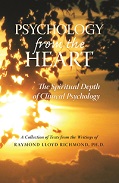 |
Psychological Healing
in the Catholic Mystic tradition |
True Christian
Identity
In Confronting
Evil |
How to Turn the
Emotional Wounds
of Daily Life Into
Psychological Growth. |
The Psychological
and
Spiritual Remedy
For Our Cultural
Disintegration |
The Struggle For
Psychological
and Spiritual
Growth |
Collected Texts
About the Spiritual Depth of
Clinical Psychology |
More information |
More information |
More information |
More information |
More information |
More information |
Desire
and
Distraction
|
Fear
|
Stopping
Smoking
|
Borderline
Personality
Disorder
|
Catholic
Compassion
|
Reverence
for the
Holy Eucharist
|
 |
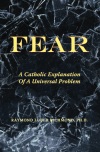 |
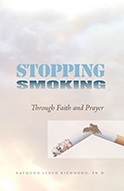 |
 |
 |
 |
A Catholic Perspective
On Behavioral Change
and Its Subversion |
A Catholic Explanation
Of a Universal
Problem |
Through
Faith
and
Prayer |
Healing
the
Rage |
When They Tell You
That the Moral Teachings of the
Catholic Church
Are Wrong |
Reverent and
Proper Conduct in
a Catholic Church |
More information |
More information |
More information |
More information |
More information |
More information |
|




 Zeuxis and
Parrhasios.[
Zeuxis and
Parrhasios.[







